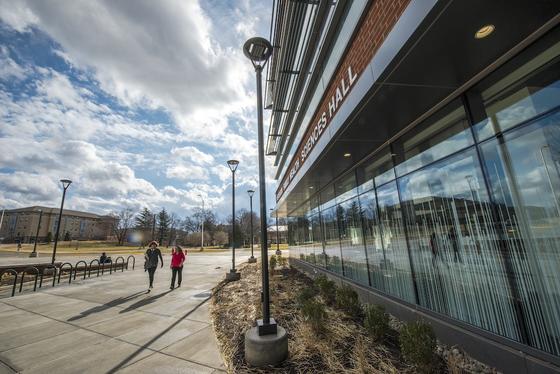As part of a federal priority to address health care workforce shortages, George Mason University’s Center for Health Workforce has received $921,000 in federal funding from the Health Resources and Services Administration (HRSA) to serve as a catalyst and facilitator for regional health workforce planning and development.

The center uses data and a collaborative model involving health and educational organizations, policy makers, community planners, and other regional stakeholders to understand local challenges related to the supply, demand, distribution, and deployment of health workers in Virginia.
This funding was allocated in the Fiscal Year 2024 Labor, Health, and Human Services, Education, and Related Agencies appropriations bill, by Virginia Senators Mark Warner and Tim Kaine.
"Virginia urgently needs to expand its health workforce to meet community needs and ensure local businesses can supply essential health care services, and we appreciate the efforts of Senator Warner and Senator Kaine for moving our proposal through the Senate,” said Caroline Sutter, co-director of Mason’s Center for Health Workforce and a professor of nursing.
This strategic investment in Mason’s Center for Health Workforce will address this critical need to grow and retain the health workforce by prioritizing regional and population health recruitment and retention through evidence-based planning and targeted interventions. These targeted interventions will help regional educational and training programs identify future workers who want to stay in the area to give back and improve the region that trained them.
The new funds will help the center expand from supporting three GO Virginia regions to all nine GO Virginia regions. GO Virginia is a bipartisan, business-led economic development initiative focused on changing the way Virginia’s diverse regions collaborate on economic and workforce development activities.
"Virginia's health care system is grappling with both immediate workforce shortages and the imperative need for long-term strategic planning to build a sustainable workforce," said Sutter. "These shortages threaten to exacerbate existing health disparities and impede access to quality care in Viriginia.”
Nurses, physicians, allied health professionals, and support staff are in short supply due to increased demand from chronic staffing shortages, unfavorable or unsafe work environments, and unrelenting workloads, leading to overworked personnel and compromised patient care. Demand for health care is skyrocketing while the workforce is shrinking; in fact, 23% of physicians and at least 30% of nurses reported they would leave their jobs if they could and 50% of workers said they plan to leave their health care jobs in the next few years.
“Mason is stepping up as a leader to respond to the needs in health care workforce development in Virginia, setting a precedent for effective planning and collaboration across sub-state regions,” said Melissa J. Perry, dean of the College of Public Health.
Additionally, the center will support the development of employer-led public-private partnerships that can leverage private resources and address barriers in public needs.
“This funding will allow our teams to identify and increase bi-directional communication between employers and academic institutions or programs that train future health workers, so that future employees feel prepared and supported in their workplace, thereby retaining great talent,” said P.J. Maddox, center co-director and professor of health administration and policy at Mason.
The center has the only integrated data system in the commonwealth to help strategize with data-based decisions around health workforce recruitment and retention that employers and academic institutions can employ in each region. For example, the center has analyzed the supply and demand for today and in 10 years for behavioral health specialists for a specific region. With this information, regions can better target their recruitment and retention strategies to help keep the future workers they train in their area when they are ready to practice.
“As the first College of Public Health in Virginia and home to the highly ranked School of Nursing, Mason is bringing together education, research, and community partners for the health and well-being of all, everything that we do. We are grateful to Senators Warner and Kaine recognizing the impact the center has already had in three of Virginia’s regions and for supporting our efforts to further support our roles as an integral hub for additional health workforce centers and organizations seeking to increase health workforce across the commonwealth,” said Perry.
Because population health needs, economic conditions, and resources vary widely by region (rural, suburban, and urban), there is no one-size-fits-all set of strategies to address regional health workforce needs and population health priorities. More importantly, regional problem solving is necessary to develop strategies for improving education and career development to meet employer’s needs, expand supply, and improve retention.
In This Story

Related Stories
- October 9, 2025
- March 25, 2025
- September 12, 2024
- May 23, 2024
- May 1, 2024
